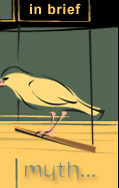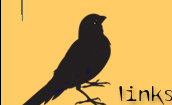


SINGING ABILITIES Sometimes a bird will stop singing. If its feathers are fluffed up and it is sitting quietly then it is probably sick and you need to take it to an avian vet. Sometimes they will stop singing for months if their nails are too long, as this can be very uncomfortable, as well as a health hazard - they can become caught on objects. Trim the nails. Don't cut them too short or they will bleed. For instructions on trimming click here. Maybe the bird is unhappy in a confined space. Get a bigger cage. A healthy, happy canary will sing its little heart out several times a day. THE ANNUAL MOLT An abnormal molt can sometimes occur. Likely triggers are extreme environmental factors such as changes in temperature, shock, illness, fear or stress. |


